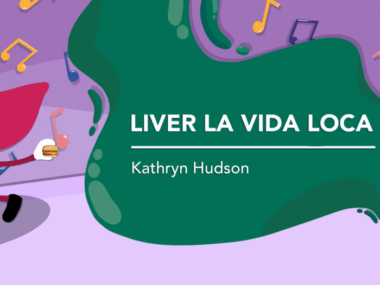How weight loss can benefit those of us with liver disease
Options include diet, exercise, and ... monster venom?
Written by |

This week, I was on the hunt for a party dress for my 14-year-old daughter, who was invited to her best friend’s birthday party. I’ve proudly watched her grow from a kid into a lovely young woman, still sweet-natured and unaffected by the body image struggles I endured at her age. I’m deeply relieved she doesn’t have to face the cruelty of being overweight and prediabetic, as I did, and hopefully won’t encounter our family curse: metabolic dysfunction-associated steatohepatitis (MASH).
For many years, I treated my body as the enemy, fueling it poorly and neglecting exercise. About a year after my mother died, my weight neared 400 pounds. Weight loss surgery seemed terrifying but necessary. Determined not to die young like my parents, I underwent the procedure.
The experience wasn’t pleasant. I was confined to a hospital in Washington, D.C., about 45 miles from Baltimore, my husband, and my cats. Maps may deceive you into thinking it’s an easy drive — trust me, it’s anything but. Traffic can stretch an hour’s trip into an infuriating marathon. After 13 days of hospital misery, I returned home, but things didn’t improve immediately.
The surgery wasn’t the success I had hoped for. Despite revisions and an initial 100-pound weight loss, I struggled to maintain it. Eventually, I regained most of the weight, leaving me devastated.
But life changed again. After divorcing, I took control, ultimately losing 200 pounds — mostly on my own, though I credit the surgery for helping me maintain a smaller stomach. Many don’t realize how easy it is to regain lost weight. With a better aftercare plan, I might have been successful sooner.
Monsters, workouts, and diets
For those facing MASH, diet is critical. You may feel you need a doctorate to decipher fats, carbs, and proteins. Yet, early-stage MASH patients have successfully reversed liver damage through weight loss. Thankfully, the liver is forgiving if treated right.
Recently, GLP-1 receptor agonist drugs like Ozempic (semaglutide) and Mounjaro (tirzepatide) have gained attention. These drugs, which contain a synthetic version of a hormone found in Gila monster venom, can significantly reduce liver fat, among other health benefits. I once joked that I loved all animals except Gila monsters, but I’ve changed my tune. Hollywood and I owe a debt of gratitude to those ugly reptiles.
While I haven’t tried GLP-1 agonists, I’m proud of my own health journey. Two friends who have tried these medications experienced mixed results — one had complications, while the other successfully lost 25 pounds. I strongly advise consulting your regular doctor, like an internist, before considering these drugs. Avoid potentially dangerous medication combinations. Your angel wings can wait.
Currently, I’m preparing for knee surgery later this year by starting personal training again, under the guidance of a trainer recommended by my orthopedic surgeon. Over recent years, I’ve discovered a real love for exercise — the flushed cheeks, sweaty hair, and endorphin rush after crushing a gym session have become addictive.
Weight loss has been my lifelong challenge, but I’m learning to adjust because health is paramount. Like Dorothy in “The Wizard of Oz,” you’ve had the power all along. So start clicking your heels, friends. Repeat after me: “There’s nothing better than being healthy.” Ruby slippers are optional.
Note: Liver Disease News is strictly a news and information website about the disease. It does not provide medical advice, diagnosis, or treatment. This content is not intended to be a substitute for professional medical advice, diagnosis, or treatment. Always seek the advice of your physician or other qualified health provider with any questions you may have regarding a medical condition. Never disregard professional medical advice or delay in seeking it because of something you have read on this website. The opinions expressed in this column are not those of Liver Disease News or its parent company, Bionews, and are intended to spark discussion about issues pertaining to liver disease.



Leave a comment
Fill in the required fields to post. Your email address will not be published.